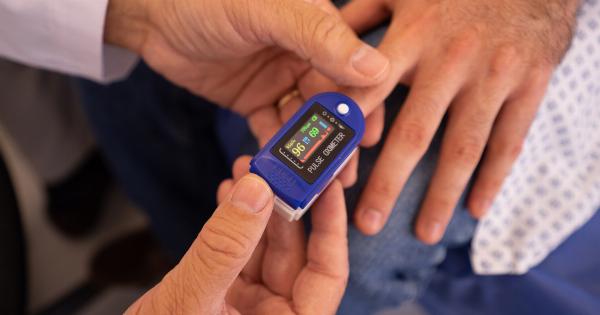Diabetes is a chronic disease that affects millions of people worldwide. It is a condition in which the body is unable to regulate blood sugar levels, leading to high blood sugar (hyperglycemia) or low blood sugar (hypoglycemia).
If left untreated, diabetes can lead to various complications, such as heart disease, kidney disease, nerve damage, blindness, and amputations.
Types of Diabetes
There are three main types of diabetes:.
Type 1 Diabetes
Type 1 diabetes is an autoimmune disorder in which the body’s immune system mistakenly destroys the insulin-producing cells in the pancreas. Without insulin, the body cannot use glucose for energy, and the glucose accumulates in the blood.
Type 2 Diabetes
Type 2 diabetes is a metabolic disorder in which the body becomes resistant to insulin or loses the ability to produce enough insulin.
This type of diabetes is more common than type 1 diabetes and is often associated with obesity and a sedentary lifestyle.
Gestational Diabetes
Gestational diabetes is a form of diabetes that occurs during pregnancy and usually disappears after delivery. However, women who have had gestational diabetes have a higher risk of developing type 2 diabetes later in life.
Early Signs and Symptoms of Diabetes
Early detection and treatment of diabetes are crucial for preventing complications. Here are some common signs and symptoms of diabetes:.
Increased thirst and urination
Excessive thirst and urination are among the most common symptoms of diabetes. When blood sugar levels are high, the kidneys try to eliminate the excess glucose by expelling it in urine, which can lead to frequent urination and dehydration.
Fatigue and weakness
People with diabetes often feel tired and weak, even if they have not engaged in strenuous activity. This is because the body’s cells are not getting enough glucose to use for energy.
Weight loss
Unexplained weight loss is another early sign of diabetes, especially in people with type 1 diabetes. This is because the body is breaking down fat and muscle tissue to use for energy since it cannot use glucose effectively.
Blurred vision
High blood sugar levels can cause the lens of the eye to swell, leading to blurred vision. Over time, high blood sugar levels can also damage the blood vessels in the retina, leading to diabetic retinopathy, which can cause blindness.
Consequences of Ignoring Your Diabetes
If left untreated, diabetes can cause serious complications that can affect many parts of the body, including the heart, blood vessels, eyes, kidneys, nerves, and feet. Here are some of the consequences of ignoring your diabetes:.
Cardiovascular disease
People with diabetes are at a higher risk of developing cardiovascular disease, such as heart attacks, strokes, and peripheral artery disease.
Diabetes can damage the blood vessels and increase the risk of atherosclerosis (hardening and narrowing of the arteries).
Kidney disease
Diabetes is one of the leading causes of kidney disease, which can lead to kidney failure and the need for dialysis or kidney transplants.
High blood sugar levels can damage the blood vessels in the kidneys, causing them to leak proteins into the urine and reducing their ability to filter waste products from the blood.
Nerve damage
Diabetes can damage the nerves in the body, leading to a condition called diabetic neuropathy. This can cause tingling, numbness, pain, and weakness in the hands and feet.
Nerve damage can also affect the digestive system, leading to nausea, vomiting, and diarrhea.
Blindness
Diabetes can damage the blood vessels in the retina, leading to diabetic retinopathy, which can cause blindness. People with diabetes are also at a higher risk of developing cataracts and glaucoma.
Amputations
Severe nerve damage and poor circulation caused by diabetes can increase the risk of foot ulcers and infections. In severe cases, amputation of the affected limb may be necessary to prevent the spread of infection.
Managing Your Diabetes
Managing diabetes involves making lifestyle changes, monitoring blood sugar levels, taking medication, and seeking medical care when necessary. Here are some tips for managing your diabetes:.
Eat a healthy diet
Following a healthy diet that is low in sugar and carbohydrates can help regulate blood sugar levels and prevent complications. Eat plenty of fruits, vegetables, whole grains, lean proteins, and healthy fats.
Exercise regularly
Regular physical activity can improve insulin sensitivity and help regulate blood sugar levels. Aim for at least 30 minutes of moderate-intensity exercise, such as brisk walking, cycling, or swimming, most days of the week.
Monitor your blood sugar levels
Regular monitoring of blood sugar levels can help you manage your diabetes and prevent complications. Test your blood sugar as directed by your healthcare provider and keep a record of your results.
Take medication as prescribed
If you have type 1 diabetes, you will need to take insulin injections or use an insulin pump to regulate your blood sugar levels. If you have type 2 diabetes, you may need to take oral medications or insulin injections.
Follow your healthcare provider’s instructions for taking your medication.
Get regular checkups
Regular checkups with your healthcare provider can help you manage your diabetes and prevent complications. Your healthcare provider may recommend regular eye exams, kidney function tests, cholesterol and blood pressure screenings, and foot exams.
Conclusion
Ignoring your diabetes can lead to serious complications that can affect many parts of your body and significantly impact your quality of life. Early detection and treatment are crucial for preventing complications and managing your diabetes.
If you have diabetes, make sure to follow your healthcare provider’s instructions for managing your condition and seek medical care when necessary.























